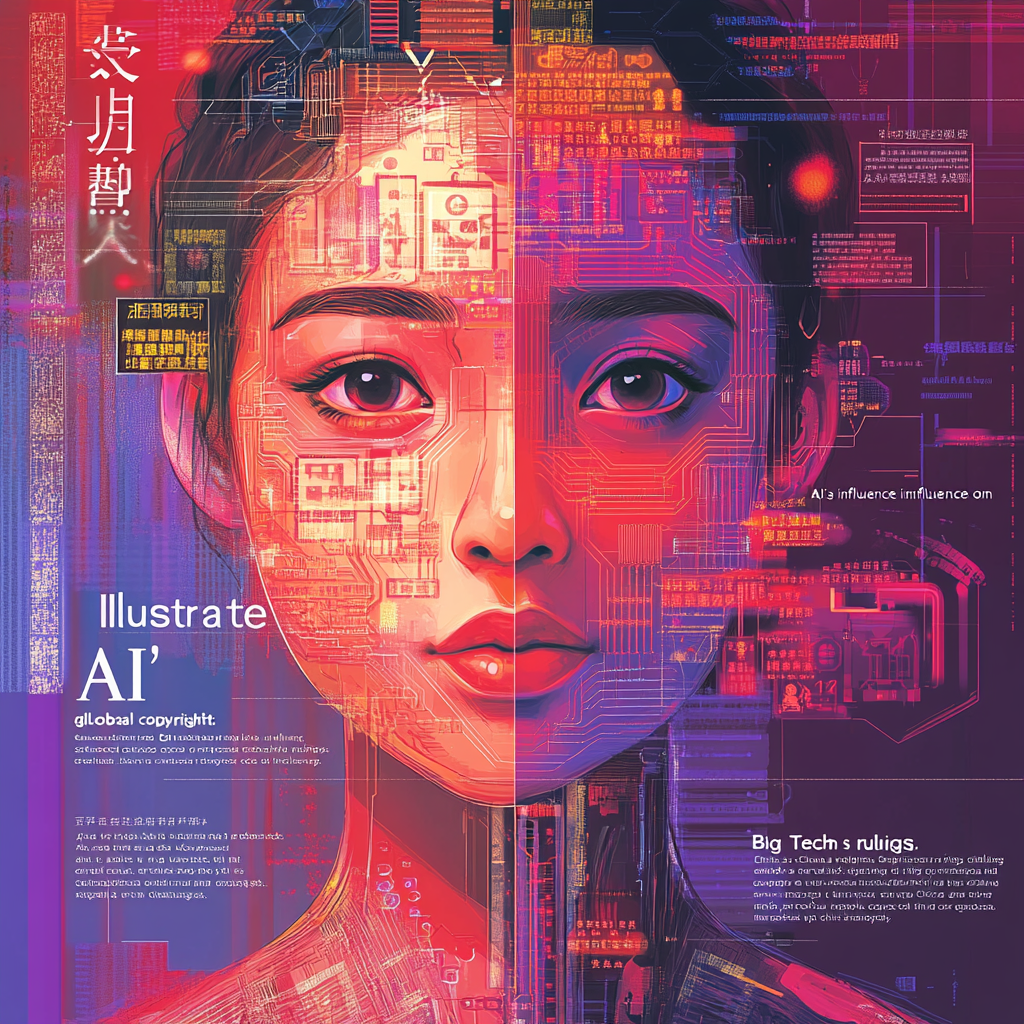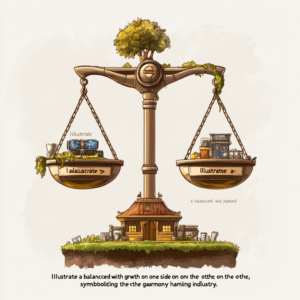
“AI, Big Tech, and Copyright: Navigating Exploitation and Innovation”
Copyright Under Siege: How Big Tech Exploits Creators with AI and a Nod to China
In the whirlwind of the modern digital era, where artificial intelligence (AI) has seamlessly infiltrated our everyday lives, a storm brews on the horizon of copyright law. If you blinked, you might have missed how swiftly generative AI technologies like ChatGPT and Google Gemini have not just redefined content creation, but have also ripped open a can of worms filled with legal and ethical dilemmas. Here’s the rundown on how big tech harnesses the prowess of AI, entwining it with the practices steaming from China, all while potentially trampling on the rights of creators.
The Rise of AI-Generated Content
Ever since the first “Hello, World!” echoed from the screens of budding programmers, the landscape of creation has undergone a seismic shift. Enter generative AI: a suite of platforms that can whip up written text, images, and even music with the mere tap of a key. With these wondrous machines pulling data from a mountain of existing works, we are left grappling with a pressing issue: what happens when this data includes copyrighted works?
To put it simply, we’re faced with a dilemma akin to baking a cake using someone else’s recipe but claiming it as your own. Generative AI has blurred the lines, making creators question whether their hard-earned works are just fodder for algorithms to munch on, or if their rights hold any water in this AI-infused world.
China’s Stance on AI and Copyright
Now, let’s take a quick spin to the East. China has demonstrated a rather bold yet ambiguous approach to AI and copyright law. Just recently, in February 2024, the Guangzhou Internet Court ruled against an AI service provider following a case where images resembling the beloved Ultraman character were churned out without so much as a by-your-leave. This wasn’t just any ruling; it marked China’s inaugural judgment concerning copyright infringement linked to AI-generated content. The implications? Robust, to say the least.
But wait, there’s more! The Beijing Internet Court has also been busy breaking ground by affirming an AI-generated image as worthy of copyright protection. If a piece meets the lofty bar of originality and reflects a dash of intellectual flair, congratulations are in order—it gets the stamp of approval under Chinese law. Sounds nice, until you consider that what constitutes “original” could be as murky as a winter fog.
The Global Implications
In our interconnected world, decisions made in one legal system create ripples that touch shores far and wide. Big tech isn’t sitting idly by while copyright music plays in the background; they are bustling with licensing deals and legal fights. For instance, the likes of OpenAI have been doling out cash to major news publishers, from Vox Media to News Corp, securing the rights to utilize their content for training AI. But the minting of gold hasn’t come without a price.
Countless creators—think Sarah Silverman, Getty Images, and, yes, even The New York Times—are roaring back with lawsuits against these endeavors, charging that their creations are being exploited in blatant disregard for copyright. Music industry titans like Universal Music Group and Sony Music are also onboard, slamming AI developers for what they perceive as a cavalier approach to intellectual property.
When we wade into the waters of the Digital Millennium Copyright Act (DMCA), it’s a slippery endeavor. AI companies could find themselves in murky waters for potentially stripping copyright management information from the data they employ. This little act can either illuminate violation or obscure it, making life quite miserable for copyright owners seeking justice. That’s not even considering the sheer volume of data in play—a nightmarish labyrinth that could spin anyone’s head.
Ethical and Legal Challenges
As we forge into this brave new world shaped by AI-infused creativity, the human touch in artistry is left wandering without a map. Could this reliance on AI ignite a slow burn where human creativity withers like forgotten flora? If China’s legal systems are any indication, we may witness a surge of litigation as courts perform an intricate ballet of navigating the legal waters surrounding creators and AI-generated works.
Now, let’s not forget about regulatory uncertainties. With China’s AI regulations still evolving at warp speed, we are left with a cocktail of ambition and chaos. The GenAI Measures—rolled out last August—showcase China’s aspirations to take the lead in AI sophistication while wrapping its own legal complexities around an industry in flux. But as creators wonder where they fit in this narrative, the pressing need for a revised framework to accommodate AI-generated works becomes glaringly obvious.
Conclusion
So, where do we stand as the chess pieces move across this strategic board of AI, big tech, and copyright? It’s undeniable that we are teetering on a precipice—one that could either foster innovation or jeopardize the core tenets of creativity itself. Here’s the crux of the matter:
- AI-Generated Content: There’s potential for copyright protection in select jurisdictions, but the qualifications for what earns that protection are as elusive as smoke.
- Licensing and Litigation: Big tech companies are crafting licensing deals, but you can count on fierce pushback from creators looking to defend their turf.
- Regulatory Changes: As nations gear up to revise their copyright laws, the journey promises to be as convoluted as the plot twists of a thriller novel.
This dance between technology and creativity is still unfolding, and as we navigate these turbulent waters, staying informed becomes not just a necessity but an obligation.
Want to stay up to date with the latest news on neural networks and automation? Subscribe to our Telegram channel: @ethicadvizor. Embrace the change, and let’s ensure that the rights of creators hold strong in this age of AI.

